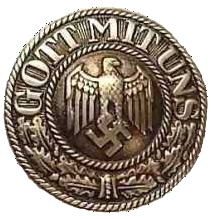bring that genius to expression. In the monotony and routine of everyday life even persons of significance seem just like the others and do not rise beyond the average level of their fellow-men. But as soon as such men find themselves in a special situation which disconcerts and unbalances the others, the humble person of apparently common qualities reveals traits of genius, often to the amazement of those who have hitherto known him in the small things of everyday life. That is the reason why a prophet only seldom counts for something in his own country. War offers an excellent occasion for observing this phenomenon. In times of distress, when the others despair, apparently harmless boys suddenly spring up and become heroes, full of determination, undaunted in the presence of Death and manifesting wonderful powers of calm reflection under such circumstances. If such an hour of trial did not come nobody would have thought that the soul of a hero lurked in the body of that beardless youth. A special impulse is almost always necessary to bring a man of genius into the foreground. The sledge-hammer of Fate which strikes down the one so easily suddenly finds the counter-impact of steel when it strikes at the other. And, after the common shell of everyday life is broken, the core that lay hidden in it is displayed to the eyes of an astonished world. This surrounding world then grows obstinate and will not believe that what had seemed so like itself is really of that different quality so suddenly displayed. This is a process which is repeated probably every time a man of outstanding significance appears.
Though an inventor, for example, does not establish his fame until the very day that he carries through his invention, it would be a mistake to believe that the creative genius did not become alive in him until that moment. From the very hour of his birth the spark of genius is living within the man who has been endowed with the real creative faculty. True genius is an innate quality. It can never be the result of education or training.
As I have stated already, this holds good not merely of the individual but also of the race. Those peoples who manifest creative abilities in certain periods of their history have always been fundamentally creative. It belongs to their very nature, even though this fact may escape the eyes of the superficial observer. Here also recognition from outside is only the consequence of practical achievement. Since the rest of the world is incapable of recognizing genius as such, it can only see the visible manifestations of genius in the form of inventions, discoveries, buildings, painting, etc.; but even here a long time passes before recognition is given. Just as the individual person who has been endowed with the gift of genius, or at least talent of a very high order, cannot bring that endowment to realization until he comes under the urge of special circumstances, so in the life of the nations the creative capacities and powers frequently have to wait until certain conditions stimulate them to action.
The most obvious example of this truth is furnished by that race which has been, and still is, the standard-bearer of human progress: I mean the Aryan race. As soon as Fate brings them face to face with special circumstances their powers begin to develop progressively and to be manifested in tangible form. The characteristic cultures which they create under such circumstances are almost always conditioned by the soil, the climate and the people they subjugate. The last factor--that of the character of the people--is the most decisive one. The more primitive the technical conditions under which the civilizing activity takes place, the more necessary is the existence of manual labour which can be organized and employed so as to take the place of mechanical power. Had it not been possible for them to employ members of the inferior race which they conquered, the Aryans would never have been in a position to take the first steps on the road which led them to a later type of culture; just as, without the help of certain suitable animals which they were able to tame, they would never have come to the invention of mechanical power which has subsequently enabled them to do without these beasts. The phrase, 'The Moor has accomplished his function, so let him now depart', has, unfortunately, a profound application. For thousands of years the horse has been the faithful servant of man and has helped him to lay the foundations of human progress, but














